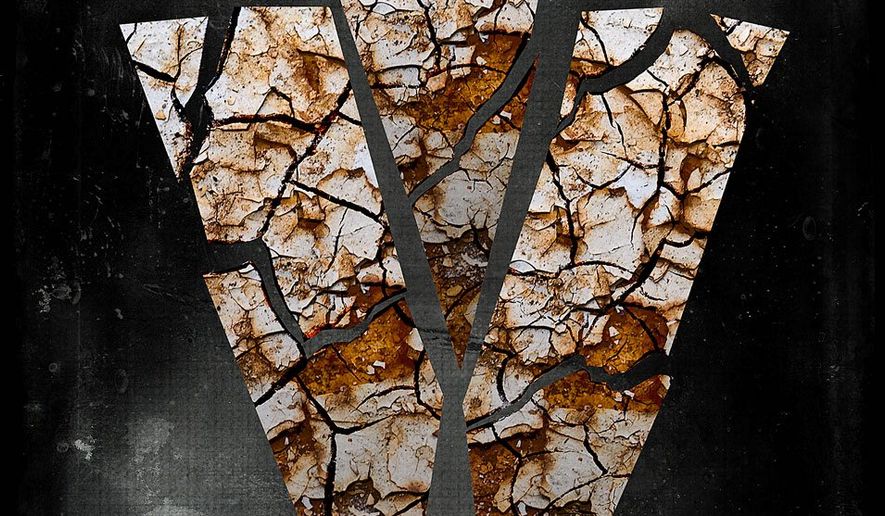OPINION:
For all of its flaws and fabrications, “The Hunting Ground,” Harvey Weinstein’s activist documentary film about sexual assault on college campuses, finally succeeded in helping to actually identify a real predator — the filmmaker himself. And, although some of his apologists like filmmaker Rob Reiner tried to excuse Mr. Weinstein’s predatory behavior by saying that he should be lauded for having funded the film to expose the epidemic of rape on college campuses, “The Hunting Ground” helped to fuel a moral panic about sex abuse that directly led to Mr. Weinstein’s own professional demise.
Released in 2015 by CNN Films, “The Hunting Ground” portrayed college campuses as places where serial sexual predators roam free to prey on unsuspecting women. Women were presented as helpless victims of evil predators who lurked in every fraternity house and campus gathering. It was disturbing. The only problem was that the film was based on a lie — none of the cases described in the film happened the way the filmmakers claimed they did. In fact, “The Hunting Ground” was so egregiously dishonest that 19 Harvard University law professors denounced the film for its dishonest portrayal of fabricated sexual violence and serial sex abuse on campus. Elizabeth Bartholet, one of the Harvard law professors speaking out about film’s errors told a reporter for Reason that the portrayal of the student-rapist in the documentary is “an amazing lie at the heart of a movie claiming to be a documentary.”
It is likely that Harvey Weinstein recognized that the audience for such a film would be huge — primarily because college campuses had become the epicenter for a moral panic surrounding sexual assault. And, like all moral panics, truth doesn’t matter. Undeterred by data debunking the notion that college campuses have become what Sen. Kirsten Gillibrand, New York Democrat, has called “havens for rape and sexual assault,” the Obama administration created draconian Title IX rules that were designed to favor those making allegations — removing due process protections from those accused. Suggesting that “women are at a greater risk of sexual assault as soon as they step onto a college campus,” Ms. Gillibrand introduced the Campus Accountability Safety Act. The only problem is that all of what is reported about a so-called “epidemic” of campus sexual assault is false. A study released by the Bureau of Justice Statistics revealed that the rate of rape and other sexual assault was much higher for nonstudents of college age than for students on college campuses. In fact, campus sexual assault had actually declined from 9.2 per 1,000 college students in 1997 to 4.4 per 1,000 students in 2013.
Women are far safer on a college campus than they would have been in Harvey Weinstein’s office. But data make little difference in the midst of a moral panic. A savvy marketer, Mr. Weinstein recognized that the country was terrified of the college campus rape “epidemic.” In the moral panic surrounding sexual assault, any allegation is a credible allegation as punitive policies were implemented infringing on the civil rights of those accused. Claiming that campus sexual assault is a common phenomenon, Ms. Gillibrand — like most promoters of the hysteria — has attempted to deploy the allegations of campus sexual assault against political opponents in what they see as evidence of the “war on women.” A few years ago, Ms. Gillibrand turned her attention to sexual assault in the military — demanding that the military chain of command be replaced with civilian legal processes in cases of sexual harassment and assault in the military.
Throughout history, America has had its share of moral panics — from the witch-burning in Salem, Mass., to the satanic day care panic of the 1980s, we have been particularly vulnerable to such panics. All of them can be understood as struggles for cultural power in the midst of rapid social change. All of this has contributed to the current situation in which Harvey Weinstein finds himself. Having fanned the flames of the irrational moral panic surrounding campus sexual assault, he now finds himself a victim of his own success.
According to his accusers, Mr. Weinstein has been engaging in this deviant behavior for decades — but until The New York Times published the incendiary piece exposing him, no one had been successful in bringing attention to it until now. In some ways, it is a typical trajectory of any moral panic — as more and more people become “aware” of the threat, more and more (sometimes innocent) people become swept up by it. We are seeing that now as women have come forward with stories about Bill Cosby, Roger Ailes and Bill O’Reilly. Some of the stories may be true — but most are not. It is difficult to tell in the moral panic.
The good news is that as more and more powerful people become swept up in the hysteria surrounding sexual assault and people see themselves as vulnerable to such charges, the panic will end as spontaneously as it began. In some ways, a moral panic can be viewed as a “correction” — not unlike a market correction. We needed to bring attention to the Harvey Weinsteins lurking among us. Perhaps now we can now begin to look at sexual assault more rationally — identifying the “real” predators among us.
• Anne Hendershott is professor of sociology and director of the Veritas Center for Ethics in Public Life at Franciscan University of Steubenville, Ohio.




Please read our comment policy before commenting.